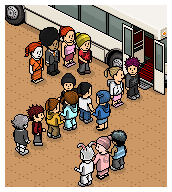
Dolphins are known to suffer greatly in captivity as they are extremely wide-ranging, highly intelligent, highly social and active animals. Captive dolphins usually live in small, sterile, chlorinated tanks and are deprived of their natural activity level, natural social groups and interactions with their natural environment. Many of them develop abnormal (stereotypic) behaviours or aggression which is not known to occur in the wild.
Captive dolphins are also often forced to entertain visitors with unnatural and degrading tricks, such as jumping through hoops or balancing balls on their rostrum, which teaches nothing about their true behaviour. Training methods can be cruel, for example involving food deprivation. Many succumb to stress-related illnesses such as gastritis and gastric ulcers.
Every year, many dolphins are caught from the wild to supply marine parks, and a thriving illegal trade in live wild-caught dolphins has emerged in order to meet the demand. The capture process is extremely violent, potentially lethal, and inherently cruel. For every wild dolphin taken captive, at least one other is injured or killed during the capture process. Studies suggest that mortality rates increase six-fold after capture. Dolphins are chased to exhaustion by men in speedboats who separate a few dolphins from the rest of the group, corral them with a net and close off the bottom. In a panic, the dolphins often injure themselves when they ram the net in an attempt to escape. Injury and death (usually by drowning) are common. The captured dolphins may then be subjected to traumatic travel in boats, shallow pens on trucks, or between countries on long-haul flights.
The removal of dolphins can be detrimental to the overall population. In particular, the taking of young females, the preferred catch of swim-with-the-dolphin facilities, can affect the health of wild populations over the long term. In regions where very little is known about the status of populations, removing any specimens from the wild is a serious conservation concern because it poses a threat not only to the survival of local dolphins but because it also undermines international measures to protect dolphins.
Resorts World Sentosa (RWS), Singapore, bought 27 wild-caught dolphins captured in the Solomon Islands to house at their new marine life park attraction opening in 2012. Two of the dolphins have since died in their care and the remaining 25 are currently undergoing training in the Philippines. ACRES is campaigning for RWS to send the 25 remaining dolphins back to the wild in the Solomon Islands, where they belong. Find out more at www.saddestdolphins.com
Join us in today's session, 19 January from 5.30pm- 7.30pm (GMT +8, SG time) to find out more.
 Dolphins are known to suffer greatly in captivity as they are extremely wide-ranging, highly intelligent, highly social and active animals. Captive dolphins usually live in small, sterile, chlorinated tanks and are deprived of their natural activity level, natural social groups and interactions with their natural environment. Many of them develop abnormal (stereotypic) behaviours or aggression which is not known to occur in the wild.
Dolphins are known to suffer greatly in captivity as they are extremely wide-ranging, highly intelligent, highly social and active animals. Captive dolphins usually live in small, sterile, chlorinated tanks and are deprived of their natural activity level, natural social groups and interactions with their natural environment. Many of them develop abnormal (stereotypic) behaviours or aggression which is not known to occur in the wild.